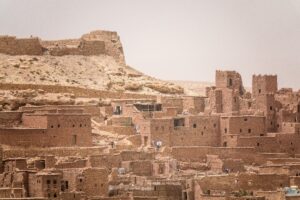
Based on his personal experience with reading, steel magnate Andrew Carnegie devoted much of his philanthropic efforts to the promotion of books through the funding of a global network of libraries. An indispensable shortcut when it came to building a possible future.
Formal education ended abruptly for young Andrew Carnegie. Barely out of childhood, at the age of twelve, when he was just beginning to explore the world with adolescent eyes, he packed his bags and crossed the Atlantic with his family. In his meager luggage as a Scottish immigrant, he carried a threadbare change of clothes, but carefully placed a treasure: his handful of favorite books. The very books that, during the Atlantic crossing, would become his refuge through endless months at sea, his grounding force, and a magical gateway to the future.
Much later, once settled in Pennsylvania, the dreams of young Andrew—first kindled on that ship as he clung to his lifeline of books—took firm root on land. At thirteen, the boy who would later become the most powerful magnate in the steel industry and launch a cascade of charitable works through the philanthropic Carnegie Corporation of New York, was taking his first steps as a simple factory worker.
Later, when money began to flow into his coffers unstoppably and propelled him high among the wealthiest men in the world, his first major act of charity was connected to books. As a self-taught man, he had learned, through experience, a secret to success. It was that anyone forced by necessity to abandon their studies to work—as he had—would always have a way forward if they had access to a library nearby. A different, parallel, and extraordinary door through which to learn, grow, and dream. As a young worker, he had benefited enormously from the book lending system in Allegheny, Pennsylvania. Later, his unstoppable drive in this direction, as a compulsive founder of libraries, earned him the spontaneous nickname of “Patron Saint of Libraries.”
Making a Key Resource for Development Available: The Book
Without a doubt, with the opening of numerous public libraries across the United States and in his native Scotland, Carnegie made an invaluable resource available to millions. This initiative in his adopted homeland became a vital boost to the movement for free public libraries in the U.S. The first cornerstone of this cultural endeavor was laid in 1881, with the opening of a public library in Dunfermline, Scotland, his birthplace. Later, his founding efforts expanded unstoppably, channeling some 56 million dollars into this cause of dreams and culture. Of the 2,509 public libraries built through the Carnegie Foundation, 1,681 were established on U.S. soil.
As a fundamental condition for his donations, Carnegie required something that reflected his core idea: libraries had to be financially maintained by the very communities they served with this invaluable cultural resource. According to the seasoned businessman, the library was the greatest gift a city or community could receive, and in gratitude, the efforts of the entire municipality should be dedicated to its care, maintenance, and growth.
Carnegie’s vision of culture continues to guide every initiative of the Carnegie Corporation of New York. Today, this institution stands as one of the largest philanthropic organizations in the field of libraries. Its work ranges from building facilities and providing collections, to funding the first U.S. graduate school of library science, digitizing collections, and supporting programs for citizens and English-language learners, among other community services.
Outline of an Indispensable Legacy
Andrew Carnegie believed, with conviction and firmness drawn from his personal experience as a young immigrant, in the unbeatable power of education to change destinies. His focus was always on ensuring access to intellectual resources for all. His commitment to creating a network of excellent, free libraries reflected his deepest aspiration: to provide access to high-quality self-education and, with it, to contribute to improving people’s lives. Below are the most notable contributions of his legacy as a great philanthropist.
- Network of Public Libraries: Andrew Carnegie personally directed and financed the construction and equipping of 2,500 free libraries around the world. The majority were in the United States, with 1,679 of them.
- Carnegie Hall: The modern and famous auditorium located in the heart of New York was one of his major contributions.






